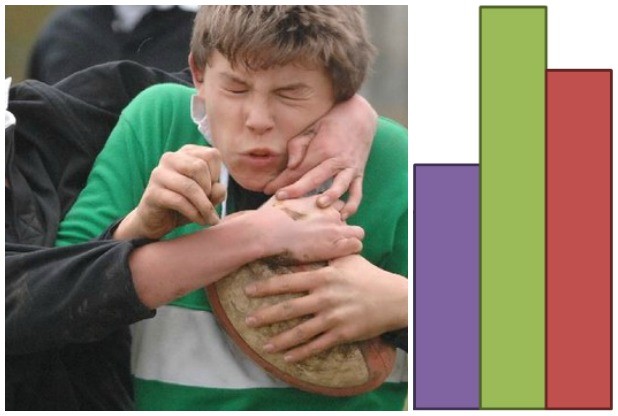-
Tips for becoming a good boxer - November 6, 2020
-
7 expert tips for making your hens night a memorable one - November 6, 2020
-
5 reasons to host your Christmas party on a cruise boat - November 6, 2020
-
What to do when you’re charged with a crime - November 6, 2020
-
Should you get one or multiple dogs? Here’s all you need to know - November 3, 2020
-
A Guide: How to Build Your Very Own Magic Mirror - February 14, 2019
-
Our Top Inspirational Baseball Stars - November 24, 2018
-
Five Tech Tools That Will Help You Turn Your Blog into a Business - November 24, 2018
-
How to Indulge on Vacation without Expanding Your Waist - November 9, 2018
-
5 Strategies for Businesses to Appeal to Today’s Increasingly Mobile-Crazed Customers - November 9, 2018
Doctors call for ban on tackling in British schools
LONDON, March 2 Doctors, academics and health experts have called for tackling to be banned in rugby played in schools in Britain and Ireland to reduce the risk of children suffering serious injuries.
Advertisement
In a open letter to ministers, they say harms from this “high-impact crash sport” can have lifelong consequences for children. Most of rugby-related injuries happen during collision or contact such as the scrum and tackle, the expert explained.
They highlighted that the sports-related collisions expose minors to high risk injuries including dislocated shoulders, fractures, spinal and head injuries and ligamentous tears.
In majority of boys’ schools in United Kingdom, especially in the independent sector, rugby is required in the physical education curriculum starting age 11.
It also warned of the dangers of concussion and noted that people who have previously suffered concussion are more likely to suffer it again.
The letter says concussion is a common injury, with a risk of depression, memory loss and diminished verbal abilities. Children also took longer to recover to normal levels on measures of memory, reaction speed and post-concussive symptoms.
The letter is the first stage of a campaign that will include a petition on the government website which, if it receives 100,000 signatures, will trigger the consideration of a debate by MPs on the issue.
It said rugby in English schools or clubs could be played as either a contact or a non-contact sport.
In addition, Pollock stated that, “90% of injuries resulted in more than seven days lost from school”.
They say two thirds of injuries in youth rugby and most concussions are down to tackles – and are urging schools to move to touch and non-contact rugby.
“Children are being left exposed to serious and catastrophic risk of injury”.
The RFU have reacted quickly to the publication of the letter, stressing that rugby is “is a fantastic sport for children with many physical and social benefits, which can include an increase in confidence, self-esteem and self-discipline, as well as getting enjoyable physical exercise while working as part of a team”.
Advertisement
“Our system makes it safe but is still rugby, still a contact sport, still about evading the tackle – if you take that away it becomes entirely different”.




























